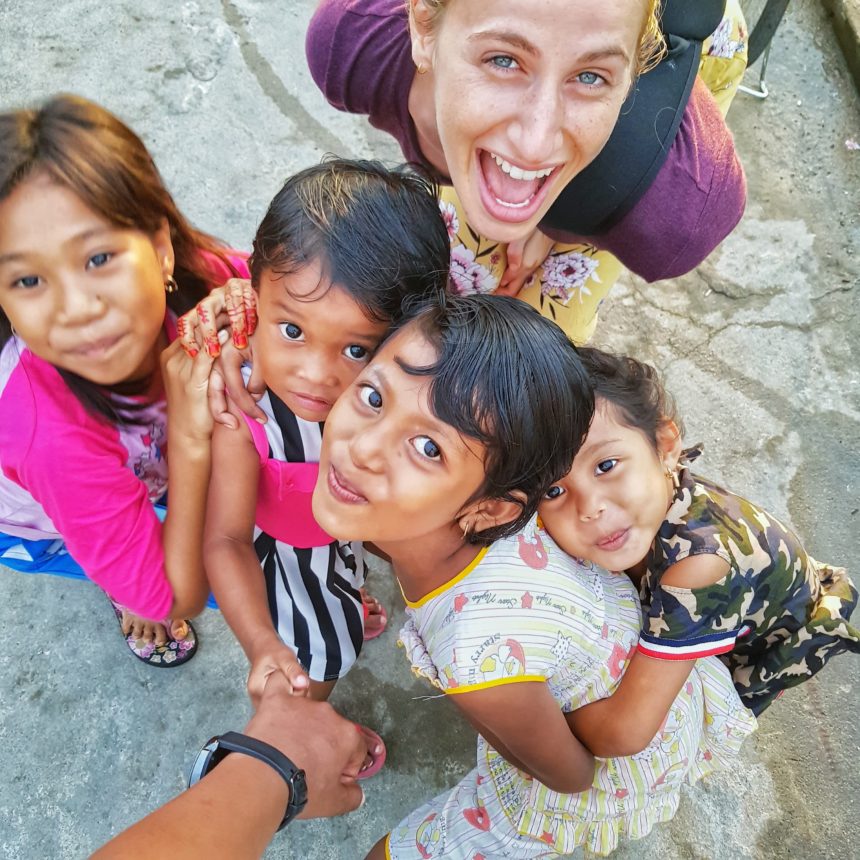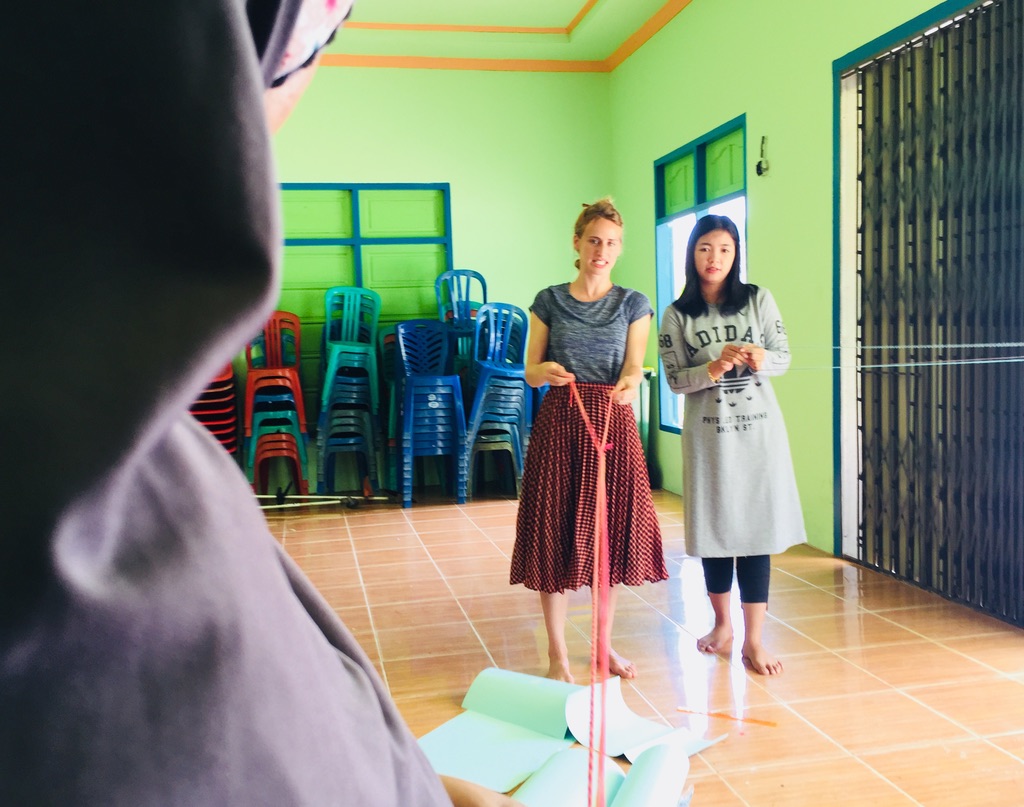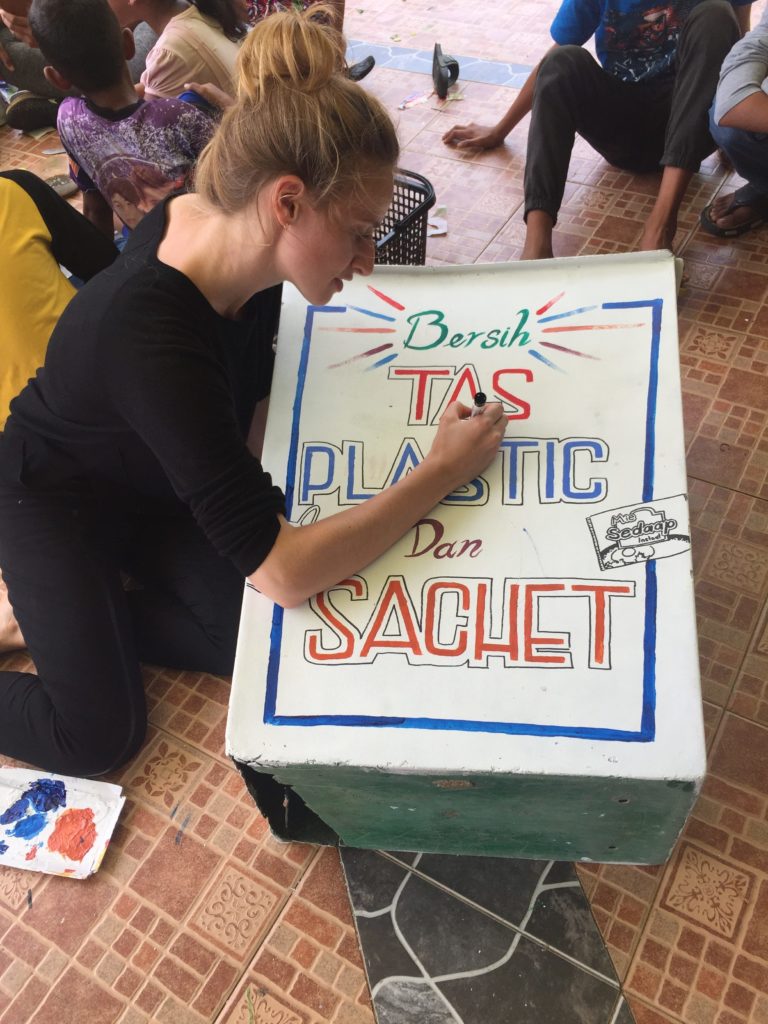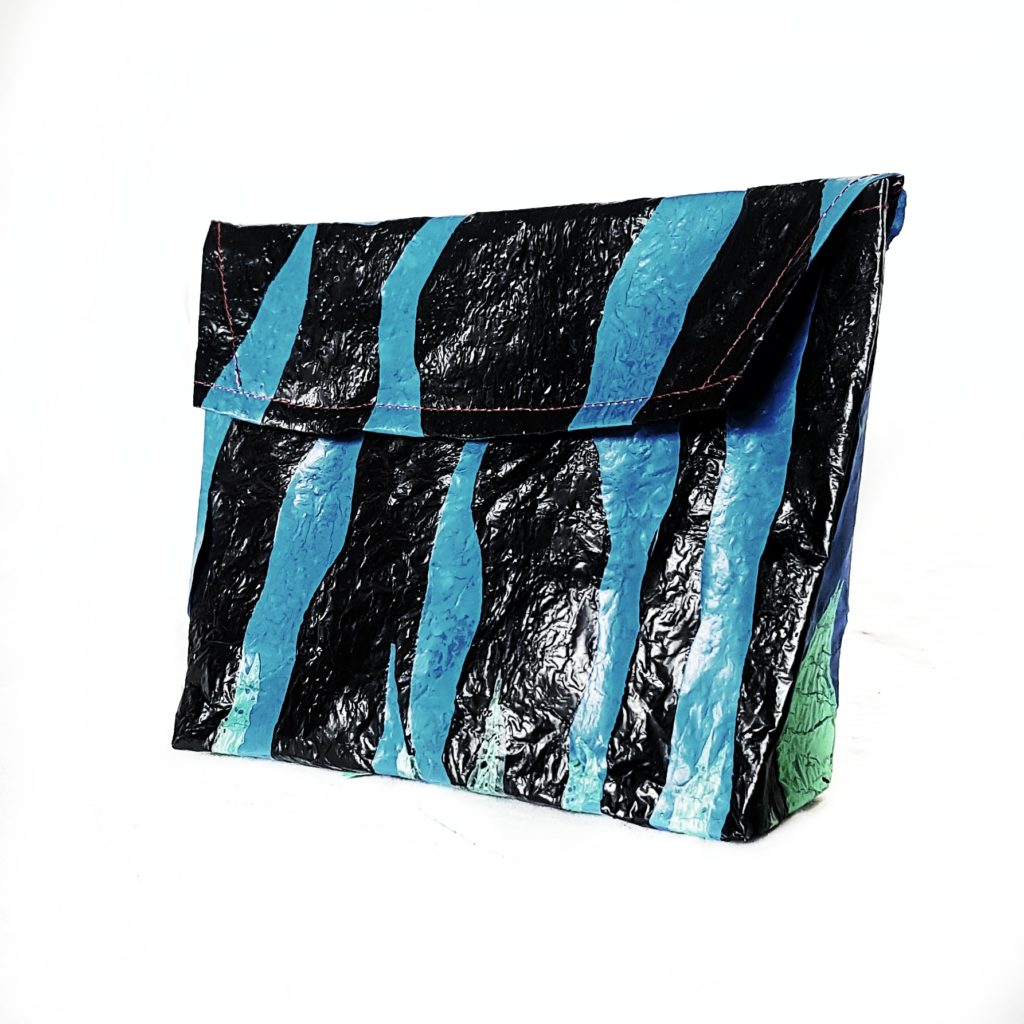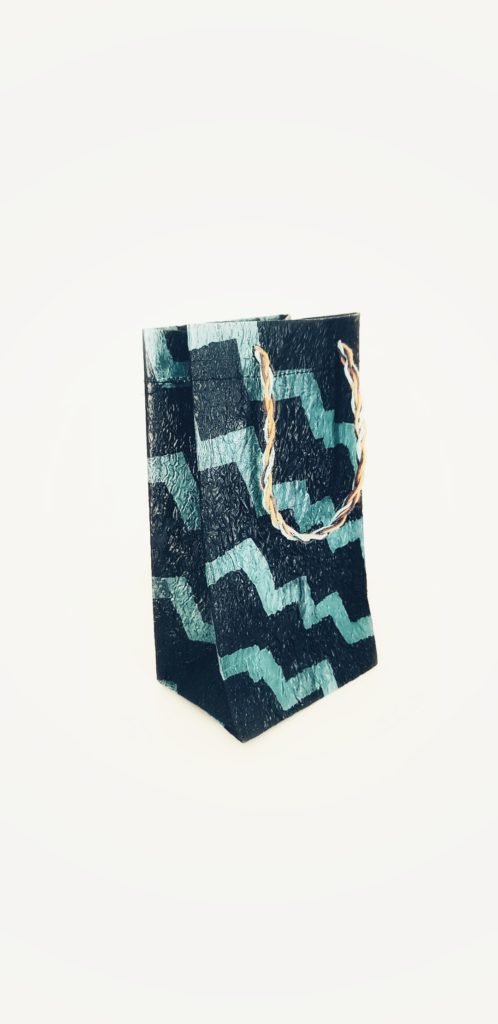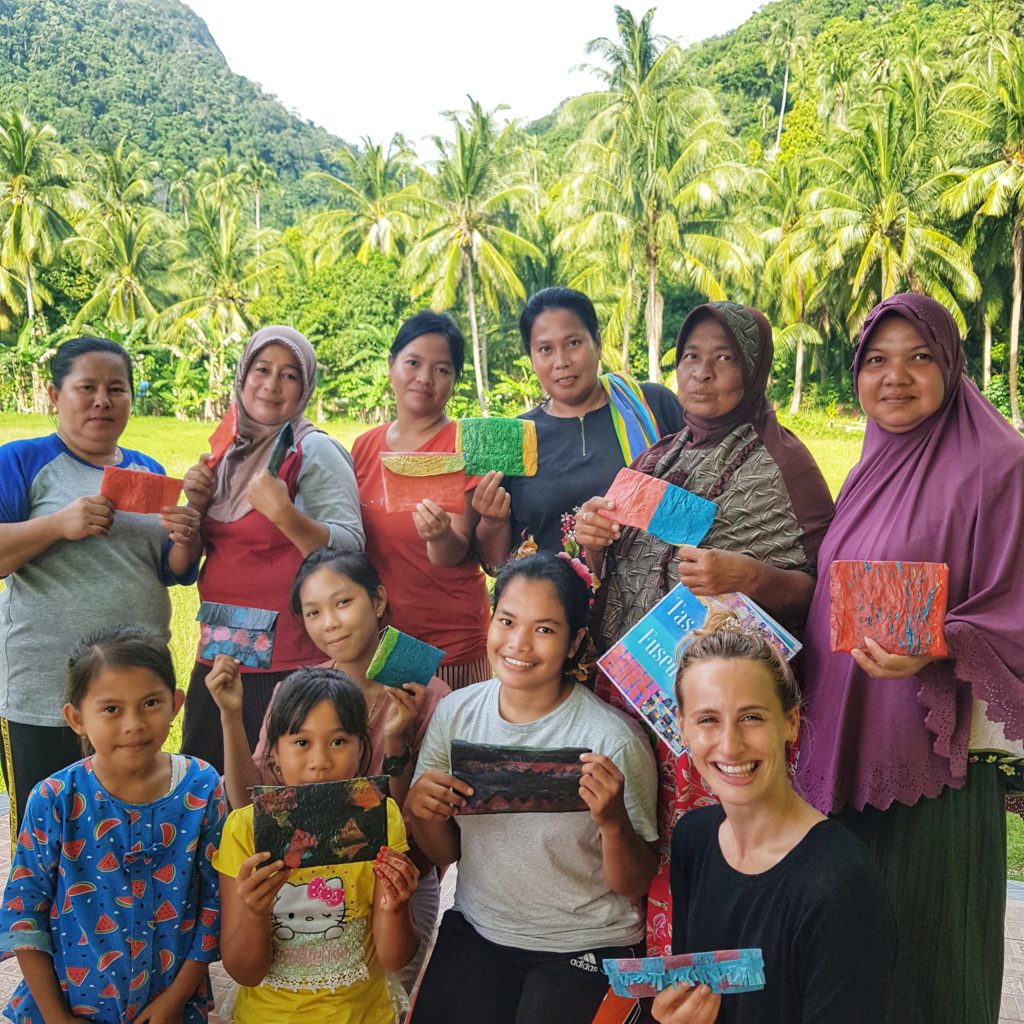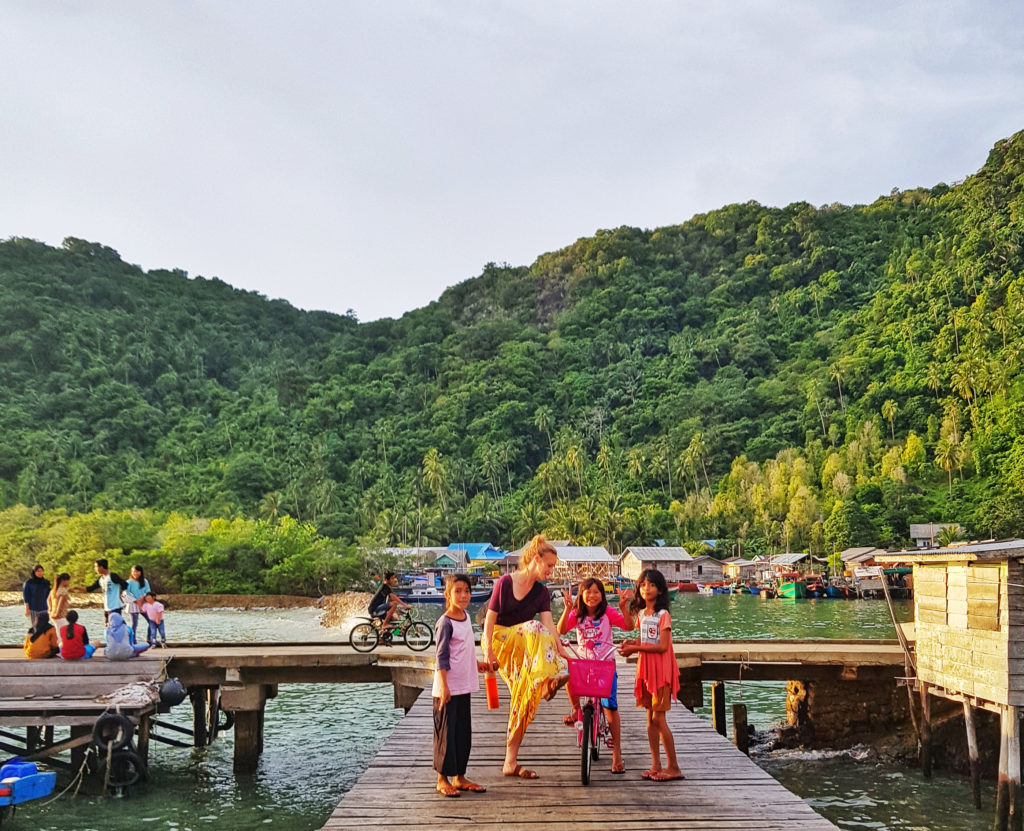In 2018 BAF volunteer Alanna Berman was visiting Bawah Reserve when she saw a presentation about the foundation, which at that time was newly established. An art teacher herself, she was interested in our waste management program activity that recycled waste collected from villages and turned it into valuable goods.
“I have done personal artwork around using waste to create something new,” she says over the phone during our interview with her.
“I was talking to Jerry [BAF Head of Foundation] and he was telling me about the project that he had of taking [used] cooking oil and turning it into wax to make candles and then make them from recycled wine glasses. Hearing about how [BAF] were doing that with the waste program started to develop some ideas about what we could do together,” adds Alanna.
Flash forward to summer 2019 Alanna traveled from the United States to Kiabu Village for the first time as a BAF volunteer. Her mission was to teach women and children in Kiabu the many ways of turning used products and waste into upcycled products such as bags and flowerpots from plastic bottles.
She was in Kiabu for three weeks and was accompanied by another BAF volunteer, Sakti Nashuka. During her first days there she spent some time figuring out some of the common waste materials available in the village and did some experimentation with them.
“We were trying to do some problem solving of what would be helpful in people’s daily lives and used the materials that we had. So we did some stencils making with them, labelled different types of waste, conducted free hand painting, we and the kids were experimenting with bottle caps and we thought them some weaving techniques,” she recalls of her time in Kiabu.
One of the big art projects she was teaching the local community was making fused plastic bags. It was one of the fastest ways to reuse waste with great variation, also easy to do and required materials commonly found in everyone’s home. The process went like this: take some plastic bags, put them in between two baking sheets or parchment paper and iron them together to create a thicker plastic and then stitch it together to create reusable products like bags or pouches.
Alanna says the experience working together with the local community in Kiabu has been wonderful and has made her more conscious about the stuff she throws away every single day. It also inspires her to make changes at home and in the school where she teaches elementary art to kindergarten and elementary school students.
As of now, she’s been staying at home throughout this Covid-19 pandemic and like many of us has been relying on technology to teach her students and getting in touch with us here in Indonesia.
She tells that she’s been experimenting with coconut shells for the upcoming upcycling training and will record the tutorial video that we will play to the women and children in Kiabu later.
Alanna also says that she really can’t wait to return to Kiabu and meet again with the local community. She recalls her most memorable moment while staying in Kiabu was sitting underneath the trees outside the houses of the two women whom she became close with.
“We would have lunch and breakfast and dinner with them every day and everybody would stop by. You’d walk around the [village] and everybody would be kind of hanging out together. There’s a really nice sense of community, It was really nice to able to experience that and live in that for a while,” tells Alanna.
